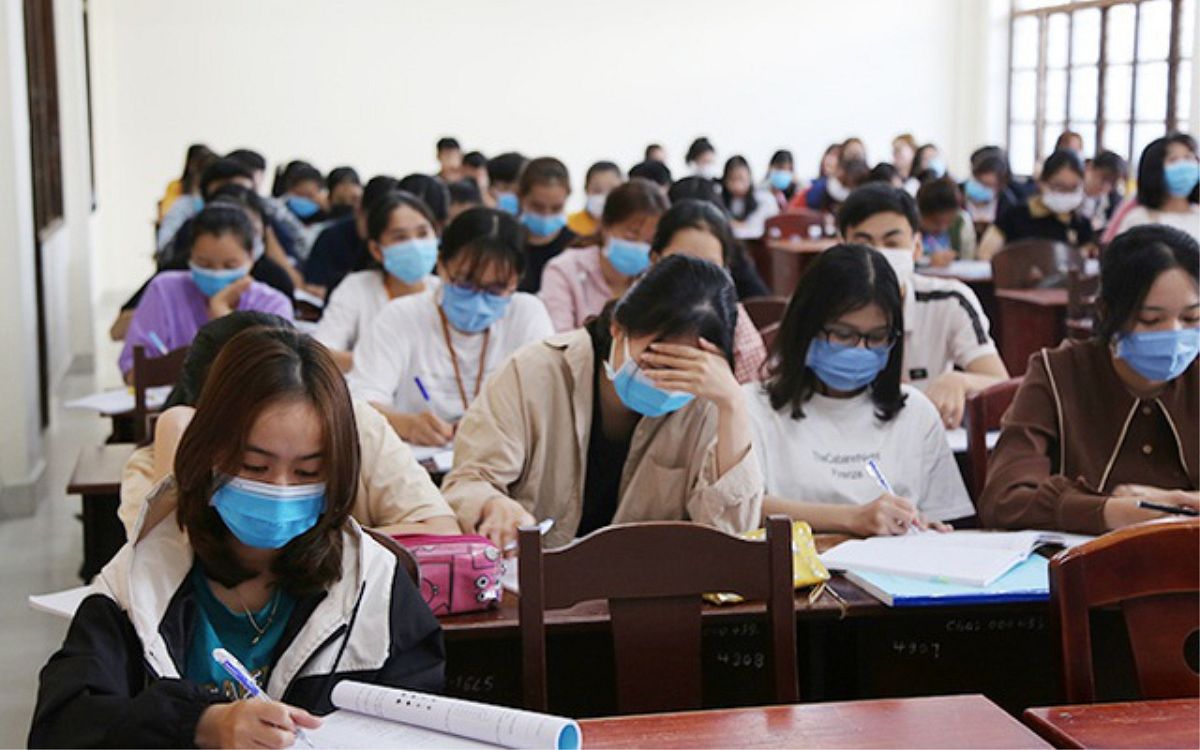It has been a disruptive two years for Vietnamese students due to lockdown regulations, so it’s unsurprising that many are struggling with their mental well-being.
The Vietnam National University-Ho Chi Minh City (VNU-HCMC) recently published the results of an internal study focusing on how the local COVID-19 epidemic has affected its students both in and out of school.
According to Dr. Nguyễn Phương Thảo, head of the research team, the data shows “COVID-19 was and continues to be the top-of-mind concern seriously impacting the mental health of youths, specifically students.”
The research, conducted from October 18 to 25 this year, surveyed 37,150 students currently enrolled at the institution, including 17,969 female students (48.4%) and 19,181 male students (51.6%). They were asked to fill in questions related to mental and physical well-being during the pandemic, COVID-19 and personal finance, COVID-19 and career prospects, and supportive measures.
Among factors contributing to anxiety among students, the top answer was pressure related to online study, at 65.1%. The current outbreak started picking up pace in mid-year, during the summer break and peaked at the beginning of the new school year in September and October, when education departments in Vietnam announced that classes would move online.
Virtual classes have become a source of worry for students across levels, not just those in college, because of insufficient resources like smart devices and even internet access in some cases. It’s estimated that thousands of pupils in primary and high schools in Saigon can’t study online due to lack of resources.
In the VNU study, 58.9% of students mention worrying about tuition fees as a source of stress. Another 27.7% cite family conflict as a factor, while overworking is a concern for 27.1% of students.
In terms of symptoms, the most commonly reported are sleeping disorders (56.2%) and loss of focus or interest in home and school activities (56.8%). Around 48% of students surveyed feel insecure, as well as a lack of confidence and life direction during the pandemic. Brain fog (36.5%) and difficulty controlling emotions (35.7%) are also concerning for some. The remaining symptoms are social anxiety (26.7%) and digestive issues (26.3%).
It’s also important to note that even though there were fewer female respondents than male ones, more female students reported having mental health struggles across all of the above-mentioned symptoms. Nonetheless, a positive sign is that female students are also more likely to undertake measures to improve their mental well-being, the report says.
To ameliorate mental health issues, 84.5% of students say they stay in contact with loved ones and 80% say that they engage in physical exercise at home. Nearly 90% join entertainment activities and 74.5% attempt to learn new skills and knowledge. Around 32.9% of students volunteer or participate in other altruistic endeavors.
[Photo via VTC]














